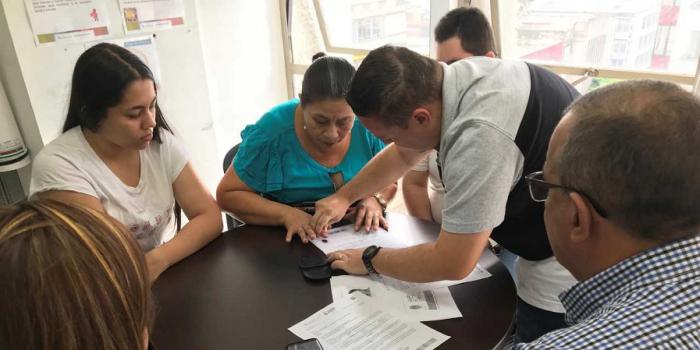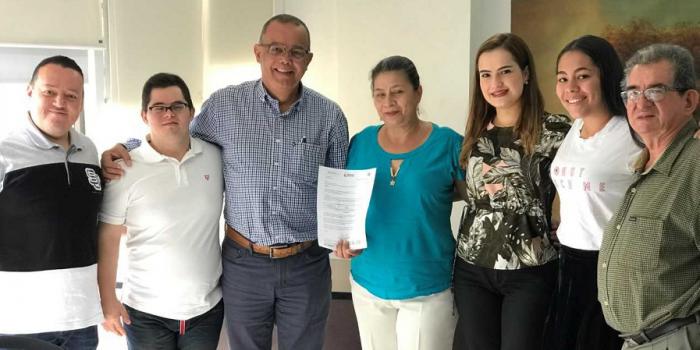
Comprehensive reparation with equality in the Coffee Region
Candida Rosa, victim of armed conflict for the murder of her husband and who suffers from a mental disability due to a vascular dementia, received administrative compensation from the Victims Unit.


Cándida Rosa Parra, 87 years old, has been subjected in the last decade to multiple neuroclinical and psychiatric treatments after a vascular dementia that suffers and that led to a fall that reduced her to bed due to a hip fracture, in addition to the loss of her speaks.
Cándida lost her life partner Rodrigo de Jesús Ramírez in San Carlos, Antioquia, and after the incident was forced to move to the city of Pereira, but in recent years her rapid physical and mental deterioration forced her daughter Nidia Rosa Ramírez Stop to get to the Perla del Otún to dedicate to take care of her mother.
And it was precisely through her daughter that Candida received the administrative compensation, as an element of reparation by the National Government.
Nidia Rosa was valued through a new instrument used by the Unit for these cases, applied from the psychosocial and accompanying components to the adequate investment of resources for victims with intellectual, mental / psychosocial or multiple disabilities in the strategy of taking decisions with support.
"We are very happy to be able to compensate Mrs Cándida, through her daughter Nidia, it is the first case in the country that compensates a person through this procedure, we know of the suitability of their relatives to care for her and We hope that this money can serve to improve her quality of life, our professionals have been attentive to the process and we have seen the family unit around their midwife, hopefully with this new instrument can solve many more cases at the national level, "he said. on the particular Freddy López Ramírez, territorial director of Unit in the Coffee Region.
Vascular dementia leads the sufferer to attention deficit, loss of memory and reasoning due to important injuries that are presented at brain level, which hinders the ability to analyze, think, make decisions and perform daily activities with a certain level of independence.
With this decision, the Unit complies with the principles of equality and non-discrimination of the Inter-American Court of Human Rights, so that persons with mental disabilities may interposedly make autonomous decisions, without declaring them to be interdicted.
"I am really very grateful to the Unit because it has been a very difficult process to see the deterioration of my mother, but we never lost faith and left me speechless when I received the news of the indemnification letter; This money comes at a very good time to meet the needs of mom, we are receiving this resource as a blessing and with it we can buy a medical bed, many cleaning utensils and a special diet so she can have a decent life "said Nidia Rosa about this process.
To close this novel procedure, Nidia had to sign an informed consent and affidavit, in which she assures that the resources will be destined to fulfill what Cándida wants and needs, because, although she cannot speak, the communication between them flows from just the looks.
The Protocol for Decision Making with Support allows the entity to know the needs of people with disabilities, victims of conflict, so that they can make use of their legal rights and access the compensation resources, in addition to complying with the Auto 173 of 2014 that seeks to guarantee recognition of legal capacity of people with intellectual, mental / psychosocial or multiple disabilities.






